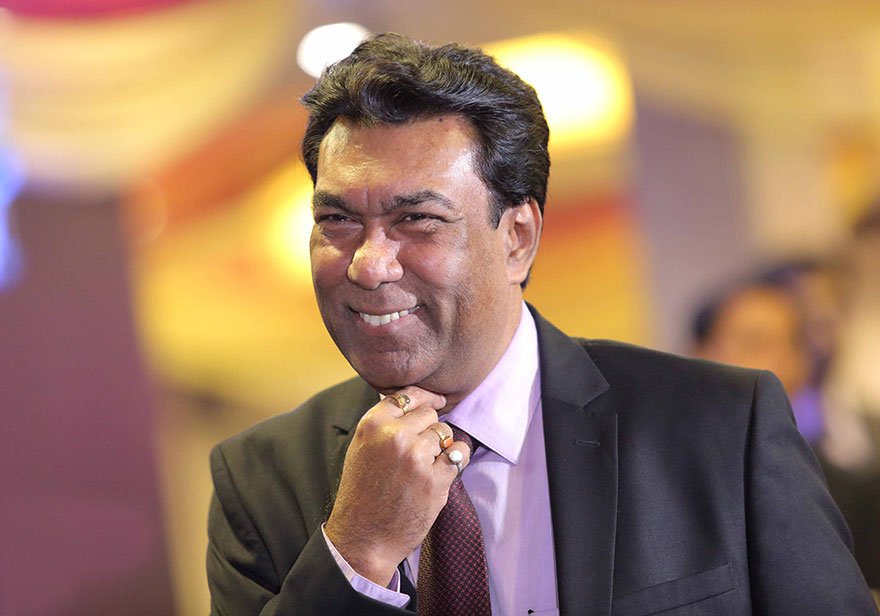
What Differentiates a Great Manager?
Why, is it that only some managers are successful?
Why, is it that only few professionals rise to the top?
What is different about the successful Managers?
Let us look at these questions and try to understand what differentiates successful manager from those who fail to make it.
I have worked with lot of managers and subordinates and no two people are the same in their approach. An individual who is successful in his or her work will not necessarily be successful as a manager. There is something that these few successful managers do differently. What are those qualities, skills and processes practiced by these managers? Let us try to understand few of those differentiators.
Competency & Knowledge
Being a great manager is like being a great teacher and decision maker first. As managers, we must not only be knowledgeable about our own industry or products but also have a strong understanding of and foresight about the industry, trends & competition. As managers we must stay current on issues regarding our industry, technology, competition, economic conditions as well as general trends. Great managers always keep themselves updated and are open to learning. We all invest in our lifestyle requirements but great managers invest equally in their learning and development as a lifestyle need. Great managers are able to take correct decisions on time in difficult situations without delaying the matters for someone else to take decision on their behalf. Our team is our family and family always looks up to the leader for guidance and advice. Great managers are able to add value to each and every team member’s productivity because of their knowledge and skills.
Focus on Mentoring & Coaching rather than results
Success of an organization lies in delivering expected results on time. Our education system also focusses on results. We have been groomed right from our childhood to focus on results. Taking these traits into our profession, we all start working towards results and if the results are not delivered, we then start looking at the reasons of failure. Data points are collected to analyse the reasons for failure and to focus on correcting them. Taking this forward most managers focus on producing results, whether it is sales or production or quality control or IT Services or profitability.
However great managers or leaders have a different view of driving results. Organizations are made by people and employees are the most important component in the success of any organization. Great managers are passionate about developing their team. They identify the strengths and weaknesses of each individual and focus on mentoring and coaching. Their priority is coaching rather than reviewing and criticising. Great managers are good observers and complement their team in areas where they are weak. In sales meetings they do not take over the meetings rather they observe their team members and add value through coaching, guidance, role plays and leading from the front, setting examples to make them more productive and independent. Great managers spend the majority of their time in coaching and developing the team. It is important to have a great team for producing results and success. Great managers have a bigger picture of business and are more strategic in approach than being transaction oriented.
Acknowledge Success than being Critic
We, as human beings, have certain psychological needs and aspirations apart from our financial and lifestyle needs. We all want to be praised and appreciated. Most managers feel that a good incentive plan motivates employees to deliver great results. Money plays an important part in our lives but this can only fulfill our material needs. In my opinion, public appreciation and recognition works as one of the most important motivators for the team and the individual. We all look for name and fame in the society in which we live. While one can earn lot of money in commission or bonuses, it remains confidential and personal. This does not elevate our ego and name in the society or organization. Great managers are quick in appreciating and recognizing successes of their team. They look forward to the smallest of wins to appreciate and recognize their team members. It is important to appreciate and recognize the employees in public to boost their morale and develop their passion to win again and again.
However,most people would say that any feedback to improve has to be provided in person but not in public. While I more or less agree with this, I believe thatat times it is also important to challenge high potential employees in public for them to live up to their potential. Great managers are able to effectively manoeuvre these acts to ignite the passion and potential of their team while being proactive in recognizing success.
While great managers are futuristic and spend their time in coaching, learning, development and recognizing their team, most managers are busy reviewing their team and identifying what went wrong and what is not being done properly or looking for weaknesses. There is no constructive feedback and most of them have no priority or focus on developing the team. These managers love their team to depend on them and become channel of information and decision flow process. They are information carrying agents within the management hierarchy.
Identify talent and Build Successors
Business continuity from a technology perspective is well understood but developing a succession plan for business continuity is equally important. While the first aspect is customer focussed, the second aspect is internally focussed to continue business growth. There are two types of managers, the first type of managers are power centric and enjoy people to depend on them. This set of managers likes and enjoys being surrounded by their team and solving their day to day problems; in other words they relish the incompetency of their team as it gives them something to “fix”. As a result, they are mostly inward looking and have a poor or very restricted view of the business. Because of this inherent nature they like to hire people who are less competent than them and always have a fear of losing their position. They focus on retaining their position & power.
Great managers, on the other hand, have a much bigger picture of their business and like to be surrounded & supported by great people.. They are outward looking and focus on being pushed upward by a strong, talented and successful team rather than being pulled inward by a not so competent team. They look at developing than managing. It is important for us to identify talent and groom them as potential leaders. Succession planning should not be considered as replacement for retirement but is an important strategy to progress. Great managers recognize this not as a threat, but as a great opportunity to move upwards in the organizational hierarchy. A great and successful team makes the manager a successful manager and opens doors for elevation however, the absence of a successor can become a road block. We need to understand that unless there is someone to take over our position, it will not be possible for us to take new positions with wider & bigger responsibility in the organization. Great managers ensure their own elevation by developing and investing in a succession plan.
Exhibit Trust & Transparency
Trust is the foundation of any relationship and trust is driven out of transparency. This is one of the most important factors recognized across the world in small and big organizations for employee engagement. No organization can be successful, no matter how many talented or capable employees they may have, if trust is lacking. All successful organizations have a strong level of trust in their leadership and management. Transparency in business is an important aspect of management practice. Managers represent the management policies, goals, mission, vision, values and strategies to their teams. They should not be acting aloof from other employees and guessing the direction and actions of the management. It is important to communicate these to the employees across the organization. Great managers communicate well and maintain transparency. Great managers not only communicate transparently with their team but also involve them in the policy & planning process for the future of the company. They let their employees express their opinion and objections in planning and decision making. All employees are concerned about their future which depends on the company’s future. Great managers bring in transparency to build trust amongst employees for the organization, its policies and its future. This builds employee stability and longevity. Employees must have clarity about the organization policies and plans. The reward and compensation policy, reward and recognition process, roles and responsibility, key result areas, product strategy, goals etc. are developed through a participative process by great managers. Organizations and managers who do not maintain transparency lack employee trust and lack of trust are visible in employee attrition and organization results.
Think Big
This is my favourite; always think bigger than what you desire. Most of us spend all our time and energymanaging crisis and transactions, improving efficiency andincreasing revenue but hardly spare time for thinking out of box, seeing the bigger picture and strategizing the same. Most of us are afraid of thinking big or even thinking beyond our four walls and are scared of taking risks. For most people, being rich is a pleasant dream, and they are happy just dreaming about it but doing nothing to achieveit. Great managers work on it and take it to the next level – they are committed to being rich, to being successful, until the dream becomes reality. Great managers spend their time in making their dreams a reality, have great foresight, and avoid wasting time on daily transaction management. They rather invest time on building strong foundation for the future.
From a sales perspective, always look for very large opportunities to be acquired for business. The amount of time and energy spent on getting business from small or mid-sized organizations is same as large enterprises and the sales cycle is much shorter. Aspirations to do something big should always be on top of the leader’s mind and this comes through creative and disruptive thought process.
I have touched upon and briefly elaborated some of the differentiators of great managers. What makes them more successful? How do they think and execute their thought process?Although this is far from being an exhaustive list of the qualities required, I hope these are useful ideas for you to adopt to become more productive and successful.





Great Article, please write more